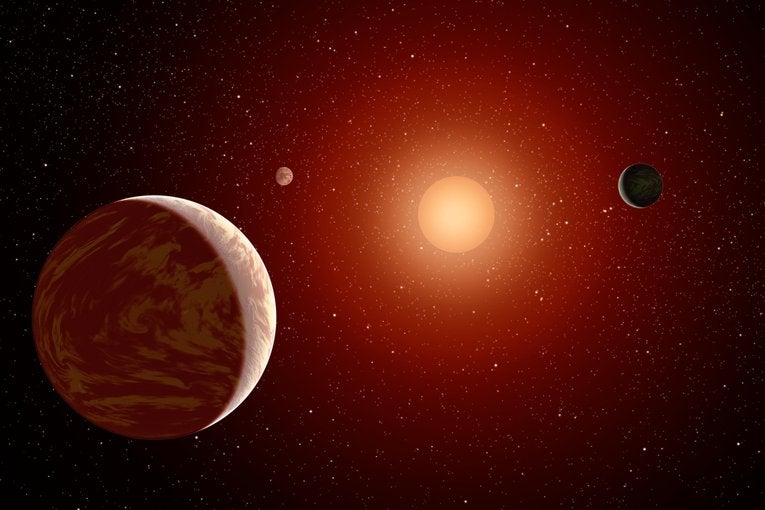Broccoli gas could be used to detect alien life on other planets, scientists say
Methylation by alien plants could put detectable compounds in the atmosphere

Broccoli could be used by scientists to find evidence of life on other planets because of a gas it gives off, scientists believe.
The green vegetable is a member of the ‘brassica’ family, which expels potential toxins from its body as gas. The process, known as methylation, means that many gases eventually reach the atmosphere – and if it were happening on an alien planet, scientists would be able to detect it.
“Methylation is so widespread on Earth, we expect life anywhere else to perform it,” said Michaela Leung, University of California, Riverside planetary scientist. “Most cells have mechanisms for expelling harmful substances.”
One methylated gas, methyl bromide, has numerous advantages over other gases traditionally targeted in the search for life outside our solar system; because the gas remains in the atmosphere for a shorter time than others, detecting it implies that something recently made it.
“If you find it, the odds are good it was made not so long ago – and that whatever made it is still producing it,” Ms Leung said.
Methyl bromide is also more likely to have been made by a living organism than a gas like methane, which can be made by microscopic life but could also be generated by volcanoes or other geologic processes. “There are limited ways to create this gas through non-biological means, so it is more indicative of life if you find it,” Ms Leung added.
While methyl bromide is an extremely common gas on Earth, it is not easily detectable in our atmosphere because the Sun’s ultraviolet rays break it down. Other stars however, such as the smaller and cooler M dwarf stars, would produce less radiation and therefore would not break down the gas in the atmosphere of their surrounding planets.
“An M dwarf host star increases the concentration and detectability of methyl bromide by four orders of magnitude compared to the sun,” Ms Leung said. M dwarfs are also more than 10 times as common than stars like the Sun, and will be the first targets in upcoming searches for life on exoplanets.
“We believe methyl bromide is one of many gases commonly made by organisms on Earth that may provide compelling evidence of life from afar,” said Eddie Schwieterman, an astrobiologist from UCR. “This one is just the tip of the iceberg.”
Subscribe to Independent Premium to bookmark this article
Want to bookmark your favourite articles and stories to read or reference later? Start your Independent Premium subscription today.

Join our commenting forum
Join thought-provoking conversations, follow other Independent readers and see their replies